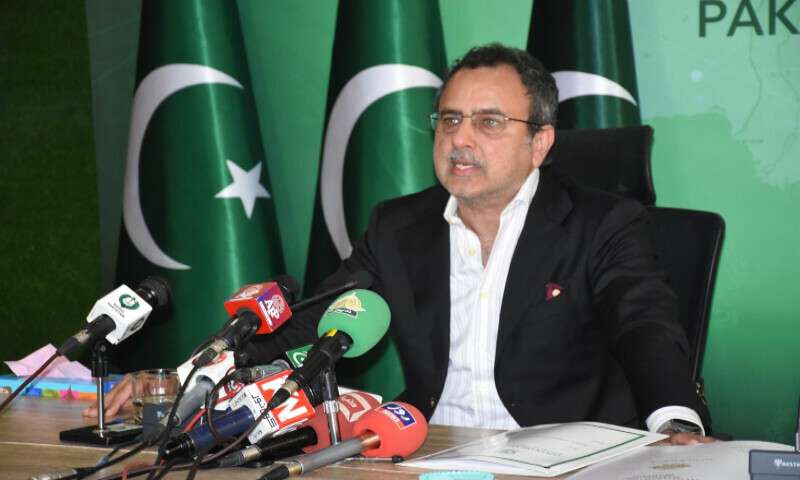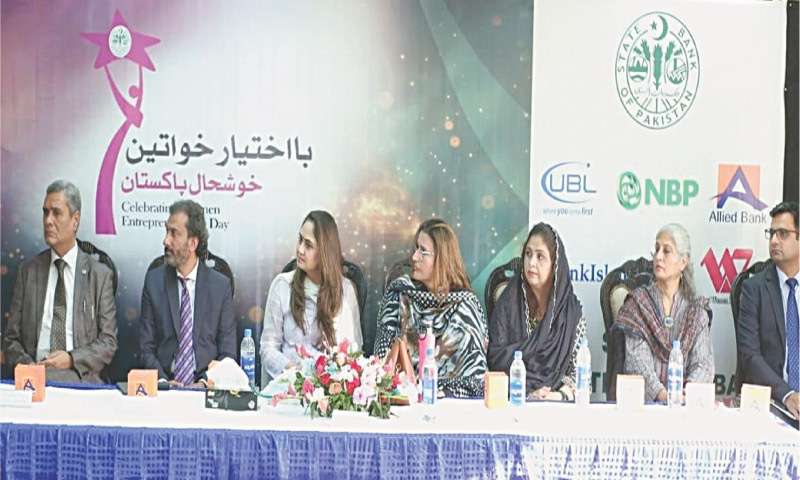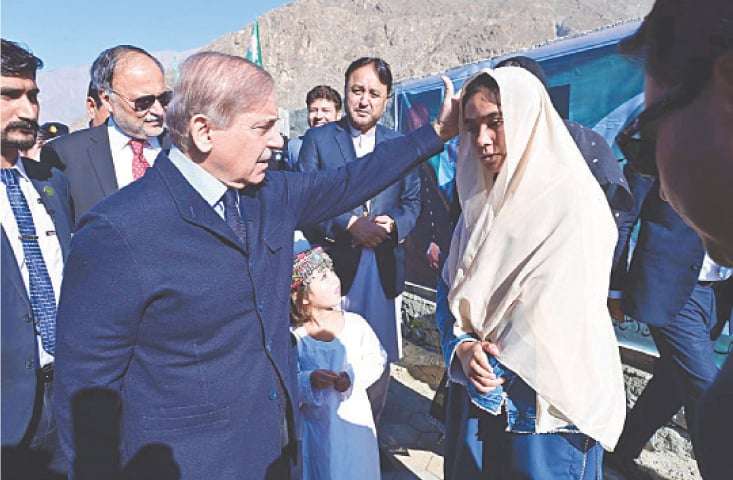Power Minister Awais discusses ongoing efforts, challenges, and reforms aimed at transforming the energy landscape in Pakistan.
Introduction: Efforts to Reform Pakistan’s Power Sector
As the calendar year comes to an end, Power Minister Sardar Awais Ahmed Khan Leghari took the opportunity to reflect on the government’s initiatives and achievements in the energy sector. His recent press conference shed light on the various strategies being implemented to address Pakistan’s long-standing energy issues, which have had significant economic and social impacts. With a focus on privatisation, innovative policies, and reforms in electricity distribution, Mr. Leghari emphasized the government’s commitment to improving energy sustainability and reducing electricity costs.
Key Government Achievements in the Power Sector
In his address, Power Minister Awais discussed a series of key developments and reforms aimed at reviving and strengthening Pakistan’s power sector. These initiatives are designed to reduce the burden on consumers while promoting economic growth.
Privatisation and Independent Directors on Boards
One of the major steps towards reforming the power sector is the ongoing privatisation initiative, which involves introducing concession models for electricity distribution. As part of this reform, the government has begun appointing independent directors to the boards of power distribution companies. This move aims to increase accountability and improve efficiency within the distribution system.
The minister emphasized that this is just the beginning of a broader plan to transform how Pakistan manages and distributes electricity. By introducing more market-driven and private sector-led policies, the government hopes to reduce inefficiencies, improve service delivery, and make electricity prices more affordable.
Shifting Circular Debt to National Debt
In a bid to reduce the burden on consumers, the government has also started shifting the costs associated with circular debt from electricity bills to the national debt. Circular debt, which has been a chronic issue in Pakistan’s power sector, refers to the money owed between power generation companies, distributors, and the government. By addressing this issue and offloading it onto national debt, the government aims to provide immediate relief to consumers while addressing long-term financial imbalances in the sector.
Reforms and Policy Changes in the Power Sector
Minister Awais also provided an in-depth look at the ongoing reforms that have been put in place to tackle the sector’s chronic challenges. Through these reforms, the government has focused on improving the financial stability of the energy sector, reducing power tariffs, and driving economic growth.
Independent Power Producers (IPPs) and Tariff Reductions
A major achievement highlighted by the minister was the termination of agreements with several Independent Power Producers (IPPs), which is expected to save the country billions of rupees. In the first phase, agreements with five IPPs were terminated, resulting in national savings of Rs411 billion and annual savings of Rs70 billion. A second phase, which involved settling agreements with bagasse-based IPPs, led to additional savings of Rs238.22 billion. Ongoing negotiations with 16 other IPPs are expected to result in further savings of approximately Rs481 billion.
These efforts have already begun to bear fruit, as the average price of electricity in Pakistan has dropped from Rs48.70 per unit in June 2024 to Rs44.04 per unit, marking a reduction of Rs4.66. Similarly, the industrial tariff has fallen from Rs58.50 to Rs47.17 per unit, reflecting a reduction of Rs11.33.
Cross-Subsidy Elimination and Industrial Growth
The government has also focused on eliminating cross-subsidies that were prevalent in the industrial sector. This has resulted in a remarkable Rs150 billion savings, which has had a positive impact on industrial growth and job creation in Pakistan. By removing these subsidies, the government has created a more competitive environment that encourages investment and supports the country’s industrial base.
Upgrading the Transmission Sector
Another key area of reform is the transmission sector. Power Minister Awais discussed the government’s efforts to upgrade the transmission infrastructure, including the bifurcation of the National Transmission and Despatch Company (NTDC) into three separate entities. These new entities will focus on efficient transmission, energy infrastructure development, and competitive electricity markets. The goal is to create a transparent and effective transmission system that can meet Pakistan’s growing energy demands.
Promoting Renewable Energy and Solarisation of Agricultural Tube Wells
One of the standout initiatives highlighted by the minister was the solarisation of agricultural tube wells in Balochistan. With a federal government contribution of 70%, the project aims to solarise 27,000 tube wells at an estimated cost of Rs55 billion. This initiative is expected to revolutionize the agricultural sector in Balochistan, providing a more sustainable and affordable energy source while promoting green energy.
Challenges in the Power Sector
While the government has made considerable progress in addressing Pakistan’s power sector issues, several challenges remain. Transmission constraints and poor recovery rates continue to contribute to losses, with Discos (Distribution Companies) accounting for Rs250 billion in losses due to inefficiencies. Minister Awais acknowledged these challenges and stressed that efforts are underway to manage the massive Rs2.2 trillion circular debt burden.
Additionally, the depreciation of the Pakistani rupee has exacerbated the problem, especially with the significant portion of power sector debt denominated in foreign currency. The government is focusing on mitigating these challenges through reforms aimed at reducing electricity costs for consumers and improving financial stability within the sector.
Bijli Sahulat Package: Reducing Consumer Burden
In line with its ongoing efforts to provide relief to consumers, the government has introduced the Bijli Sahulat Package. This package offers a special tariff of Rs26.07 per unit for households and industries, which is expected to reduce electricity costs for millions of consumers. Domestic consumers can benefit from savings ranging from Rs11.42 to Rs26.00 per unit, while commercial consumers can save between Rs13.46 and Rs22.71 per unit. Industrial users can expect savings of Rs5.72 to Rs15.05 per unit under this initiative.
Future Initiatives: Electric Vehicle (EV) Policy and Green Energy
Looking towards the future, Power Minister Awais also announced the upcoming Electric Vehicle (EV) policy. This policy is designed to promote the use of electric vehicles by offering special tariffs for EVs, thereby reducing Pakistan’s dependency on imported fuels and lowering greenhouse gas emissions. The policy also aims to create jobs in the local manufacturing sector and support the development of EV charging infrastructure across the country.
Conclusion: A Promising Future for Pakistan’s Power Sector
Despite the significant challenges faced by Pakistan’s power sector, the government’s bold reforms, innovative policies, and strategic investments are laying the groundwork for a more sustainable and economically viable energy future. With ongoing efforts to reduce electricity costs, promote green energy, and address circular debt, the future of Pakistan’s power sector looks promising. Minister Awais remains optimistic that these initiatives will lead to a more efficient and equitable energy system, benefiting both consumers and businesses alike.
FAQs:
- What are the major reforms in Pakistan’s power sector?
- The key reforms include privatisation of distribution companies, termination of IPP agreements, and the establishment of new transmission entities to improve energy infrastructure.
- How is the government reducing electricity tariffs?
- The government is negotiating better deals with IPPs, eliminating cross-subsidies, and introducing the Bijli Sahulat Package to lower electricity costs for consumers.
- What is the impact of solarisation of agricultural tube wells in Balochistan?
- The solarisation project is expected to provide affordable and sustainable energy to farmers in Balochistan, promoting green energy and improving agricultural productivity.
- What is the Bijli Sahulat Package?
- It is a special tariff plan that provides reduced electricity rates for households, industries, and commercial consumers, aiming to alleviate the financial burden of high electricity costs.
- How will the Electric Vehicle (EV) policy benefit Pakistan?
- The EV policy will reduce reliance on imported fuels, cut greenhouse gas emissions, and foster economic growth by creating jobs in local manufacturing and developing EV infrastructure
SEE ALSO
https://flarenews.pk/2024/12/29/aurangzeb-calls-for-unity-to-boost-tax-contributions/



